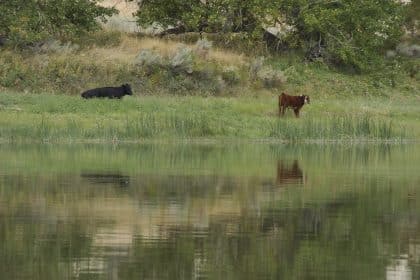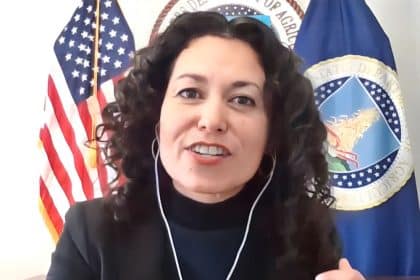Bipartisan RURAL Act Introduced to Expand Access to Rural Broadband Grants and FEMA Disaster Relief

This week, Representatives Terri Sewell, D-Ala., and Adrian Smith, R-Neb., introduced the Revitalizing Underdeveloped Rural Areas and Lands (RURAL) Act, legislation to help preserve jobs and encourage infrastructure development by expanding access for tax-exempt cooperative organizations to a variety of government grants and assistance, including FEMA disaster relief.
The RURAL Act would amend the Internal Revenue Code to ensure tax-exempt cooperative organizations do not lose their tax-exempt status when they apply for and use certain government grants, contributions and assistance, including rural broadband grants and FEMA disaster relief.
“Our rural communities depend on reliable infrastructure, access to broadband and secure energy sources for their local economies to thrive,” Representative Sewell said. “Alabama’s rural electric co-ops provide essential broadband services in rural areas where high-speed internet is limited but essential to those areas’ economic growth.
“We must do more to provide high-speed internet – and the opportunities and resources that it brings – to the 22.4 million Americans living in rural parts of our country without quality internet access,” Sewell continued. “The RURAL Act would ensure that these co-ops can retain their tax-exempt status when applying for grants to expand rural broadband or disaster assistance and provide these co-ops with the ability to secure the grants needed to continue to grow their renewable energy, economic development and energy efficiency initiatives.”
“Nebraska has a long tradition of relying on public and cooperative power generation to affordably meet the needs of families, farmers, ranchers, and small businesses,” Representative Smith said. “While continuing to ensure rural electric co-ops are largely funded by their membership as a condition of their tax-exempt status, we should also ensure funds received from grants or for pole usage do not affect their tax status.
“Just as rural power generation and transmission were vital to rural economic growth in the 20th century, access to both power and broadband will drive our rural economies in the 21st,” he added.
Jim Matheson, CEO of the National Rural Electric Cooperative Association, said the legislation will enable electric cooperatives to continue powering rural communities across America.
“Without this legislation, co-ops risk losing their not-for-profit, tax-exempt status if they accept government grants for recovery from major storms or to expand rural broadband access and other services that are critical to the future of rural communities,” Matheson said. “I applaud Congresswoman Sewell’s leadership on this issue and encourage House members to join the sponsors in supporting this bill.”
A Senate companion measure was introduced by Senators Rob Portman, R-Ohio, and Tina Smith, D-Minn.
“In today’s technology-dependent world, we must do more to bring high-speed internet and stronger grid infrastructure to the rural areas of our country,” Senator Portman said. “Tax-exempt rural co-ops provide these important services to parts of the country where access to reliable electricity and high-speed internet is the most limited, and they rely heavily on grants to perform these services. Without this legislation, many co-ops may miss out on grant income or disaster assistance, hurting our efforts to promote economic development and job creation in these rural areas.”
“We should take any action we can to help us get more Minnesotans and Americans in rural areas connected,” Senator Smith said. “So when I heard from several Minnesota cooperatives at risk of losing their tax-exempt status, I wanted to reverse that. This bipartisan legislation would ensure that co-ops can retain their tax exemptions in efforts to expand rural broadband or in providing relief from, or preparation for, a disaster or emergency. I’m encouraged that this bill has bipartisan support as well in the House, and I’ll be pushing for this legislation to become law so we can make sure rural broadband keeps expanding.”
Text of the RURAL Act is available here.
























